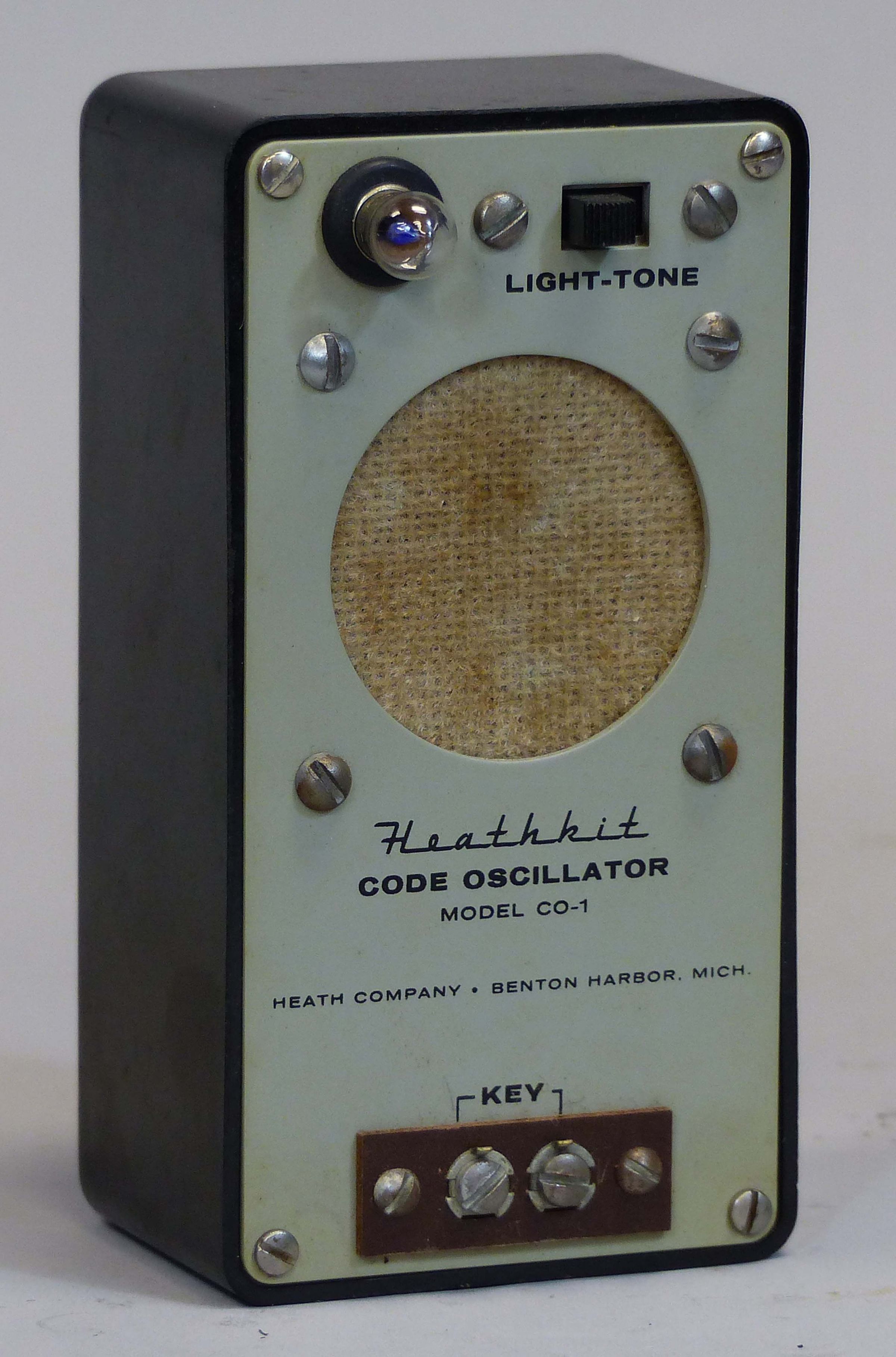Note
The first of three code practice oscillators made by the company, this transistorized, battery-powered unit didn’t match any other Heath amateur product in size, shape, or color scheme. The unit is enclosed in the same black plastic box used with the small resistance substitution boxes as well as the CR-1 crystal radio.
The CO-1 has a white front panel and a cloth grill over the speaker. It is powered by two “C” cells, was supplied with a key and features a switch-selectable tone or blinking light. The circuit uses a single 2N238 PNP germanium transistor.
Early in 1964 Heath changed the transistor to a 2N407 and added a 0.1 µF disk capacitor connected between lugs 1 and 2 of terminal strip BB (between the base lead of the transistor and ground). Refer to illustration.
In 1967 Heath completely re-designed the CO-1, enclosing it in a metal box with classic green paint. The result was the HD-16. Still later the HD-16 was downsized into a less expensive plastic box and designated the HD-1416. In spite if its long production run the CO-1 is not common.
References:
Review. CQ. Jul 1959, p. 83.
Use as keying monitor. CQ. Jan 1960, p. 80.
Tone frequency: approx. 1000 Hz
Controls: switch for tone or light
Current drain (light): 300 mA
Current drain (tone): 10 mA
Power requirements: 2 “C” batteries
Solid-State: (1) 2N238 (2N407 after February 1964)
Photos, general information and specifications from "Heathkit: A Guide to the Amateur Radio Products," by Chuck Penson, WA7ZZE. Used with permission.
